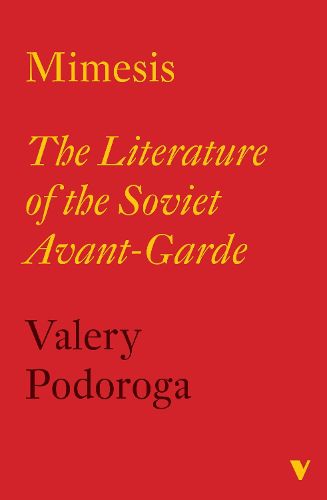Readings Newsletter
Become a Readings Member to make your shopping experience even easier.
Sign in or sign up for free!
You’re not far away from qualifying for FREE standard shipping within Australia
You’ve qualified for FREE standard shipping within Australia
The cart is loading…






The second part of Valery Podoroga's Masterly work on the the politics of literature and how it is used to construct the world. With a focus on the revolutionary works of Andrei Platonov and the futurist collective Oberiu, Podoroga shows how profoundly the soviet experiment overturned the traditional expectation of fiction and poetry. And how the production of this work was intensely interwoven with the political and historical debates of the times.
This volume expands on his critical explanation of the analytic anthropology of literature. He explores how literature can be used in 'world-building', both in what happens inside the narrative but also in the way it reflects the external world. He also probes how the work functions outside of its times: both as a means to project into the future, and as a document of a former age. How are we to read the past through these works of the imagination?
With an introduction essay from the author's daughter, Ioulia Podoroga, and a preface from Frederic James.
$9.00 standard shipping within Australia
FREE standard shipping within Australia for orders over $100.00
Express & International shipping calculated at checkout
The second part of Valery Podoroga's Masterly work on the the politics of literature and how it is used to construct the world. With a focus on the revolutionary works of Andrei Platonov and the futurist collective Oberiu, Podoroga shows how profoundly the soviet experiment overturned the traditional expectation of fiction and poetry. And how the production of this work was intensely interwoven with the political and historical debates of the times.
This volume expands on his critical explanation of the analytic anthropology of literature. He explores how literature can be used in 'world-building', both in what happens inside the narrative but also in the way it reflects the external world. He also probes how the work functions outside of its times: both as a means to project into the future, and as a document of a former age. How are we to read the past through these works of the imagination?
With an introduction essay from the author's daughter, Ioulia Podoroga, and a preface from Frederic James.